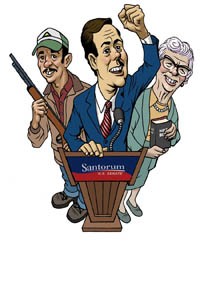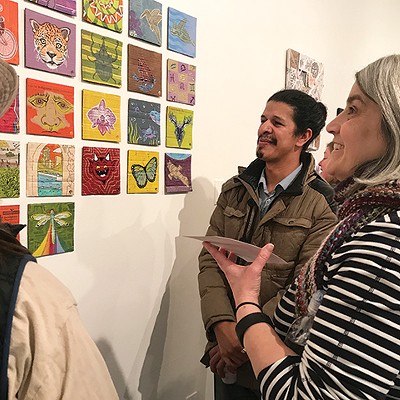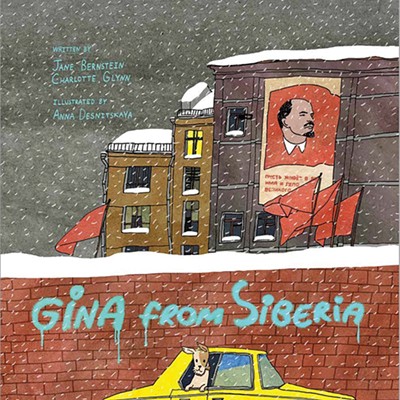Democratic incumbent Don Walko has been representing the 20th district since 1995. He prides himself on the block grants he's gotten for community groups in the district, which includes parts of the North Side, Lawrenceville, the Strip District and the North Hills. And he touts his work with the state's "Growing Greener" initiatives to help preserve and clean up the environment, and his efforts to alleviate health-care costs, specifically through prescription-drug plans.
But Walko also helped himself as a legislator: He took (and eventually voted against) the notorious 2005 legislative pay raise. And that got Bill Stalter's goat enough for him to change his registration from lifelong Democrat to Republican -- just so he could give Walko a run for his money. Stalter, a lumber broker from Reserve Township, says he got tired of the "good ol' boy network" and wants to inject fresh ideas into the House.
"Our system has been hijacked by lawyers and career politicians," he says. He favors term limits because "once a politician gets into office, there's no sense of urgency."
The Walko campaign has the Stalter campaign financially outgunned, by more than 10 to one, as of June, the last time campaign-finance figures were updated. Walko's got party money behind him, as well as labor unions and private individuals. Stalter's donations have come entirely from private individuals, including, most sizably, Stalter himself.
But despite the Democrat's fund-raising advantage -- and the fact that the district skews Democratic -- Stalter says that switching parties hasn't proved too much of an obstacle. "Most people are getting educated and realizing you vote for the person, not the party," he says. But many of his ideas are traditionally associated with the GOP: He's pro-life, a member of the National Rifle Association, and opposes government meddling. Like the smoking ban, for instance.
"I am 100 percent in favor of banning smoking in public places," says the self-described reformed smoker, "but it's a very slippery slope when the government starts telling private clubs what they can and can't do." Market forces, he says, should be left to determine the fate of taverns that choose to be smoke-free or not.
To Walko, co-sponsor of a statewide ban, it's not slippery. "It is government intrusion," he says, "on behalf of people who don't want to smoke."
Health care, Walko says, is the most pressing issue facing the state, and the one he sees as most urgent. To that end, he's worked on expanding PACE and PACENET, prescription-assistance programs for the elderly. He also wants to see prescription drugs imported by way of multi-state buying coalitions. Additionally, as the chairman of the board of the Pittsburgh Water & Sewer Authority, he says he looks forward to working on the smelly problem of storm-water overflow.
Stalter cites public safety as his top priority and says infrastructure improvements, which he calls a state responsibility, are a key way to address this. Keeping roads and public utilities up to date, he says, will help attract businesses that will bring jobs and retain population. He also says that allowing retired police officers to come back to the force in administrative functions could free the time of other cops to be out on the streets addressing drugs and crime in the district.
To address the perception that the state's legislature may need an overhaul, both Walko and Stalter are open to convening a constitutional convention, not undertaken since 1967 and before that, not since 1874. Neither of them says it's a priority, and they'd take different approaches to such a convention, were it to happen.
"I'd be very fearful if it was wide open," says Walko, favoring a committee to limit the agenda the convention could act upon. "You just can't go in there and have a free-for-all -- it means the political winds of the day prevail." He's a cosponsor of legislation to set up a commission on determining what would be up for debate, citing a similar process back in 1967.
Stalter says a convention should be wide open. "This is the land of the free. You get open ideas and it leads to change."



















